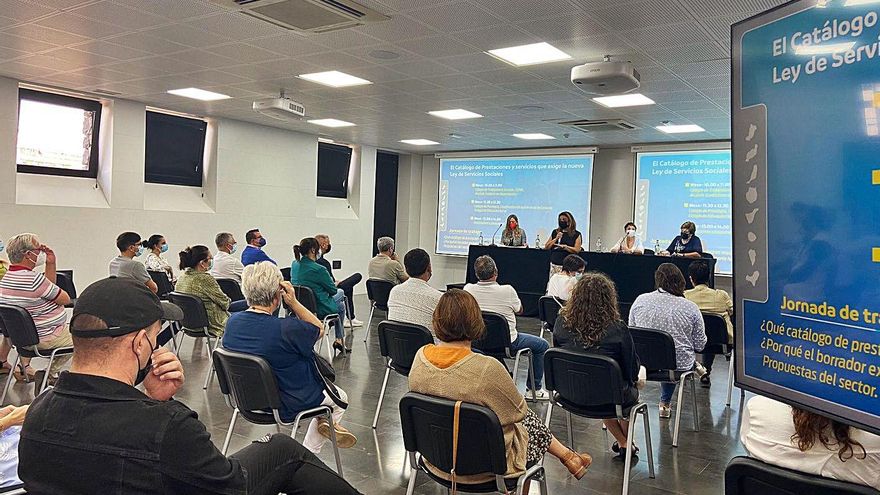
The secretary general of CC, Fernando Clavijo placeholder image, made an appeal “to the responsibility” of the Canarian Executive, which urges “to stop, listen and discuss with the sector if what they really want is to protect those who are experiencing the worst in this land.” The leader of the Canarian nationalists admits that he does not understand “those who close the door to dialogue when what is at stake is the protection of the most vulnerable.”
Likewise, Clavijo acknowledges that Without the Professional Associations and the social entities «the administration would not be able to respond to even 10% of the services that right now they are lent ». For this reason, he understands that “far from erasing them from the map and restricting their participation in a document as important as the new catalog, as they denounce, what they should have is a calm debate that enables 21st century services.” Clavijo believes that this would give continuity to the work begun in the previous legislature when the new Social Services Law was approved, “a pioneer in the State and the result of extensive work and consensus in which political organizations, entities, professional associations and experts from the Third sector”.
The executive secretary of Social Rights of CC, Cristina Valido, for its part, urges the Canarian Government to “work day and night if necessary to carry out the catalog of benefits and social services.” In this sense, he denounces that “they have had more than two years to work with entities and professionals in the sector, but they have chosen to put them aside and present a draft that no one supports and endangers the social benefit system.”
Valido warns that this catalog “is not a mere procedure, but constitutes, together with the regulations, the backbone of the Social Services Law, approved in the previous legislature” but that “it is of no use without a catalog and a regulation that respond to this law. In this regard, Valido points out that the draft “among other things leaves out areas such as Mental Health.”
Carmen Arceo, from the College of Social Workers, points out that “it is a disastrous, incoherent catalog, full of errors and a lack of the principle of active participation.” It recognizes that “as it is, it is unfeasible because it confuses benefits with services and, furthermore, it fails to comply with inclusive language.” The president of Cermi Canarias, Carmen Laucirica, also rejects the draft because “he forgets early care, care for guardianship, family conciliation or labor inclusion”. Also, “from the disability that the ugly duckling looks like.” For the director of Acufade, Elena Felipe, “the people who care are left unprotected.” Emma Colao, from the Coordinadora de Acción Social de Canarias, assesses that “it is the same catalog from 1984”.
A discussion table has collected contributions, concerns and also conclusions in the sense that “withdraw the draft and start from scratch.” Finally, the mayors of La Orotava, Francisco Linares, and of Santa Cruz de Tenerife, Jose Manuel BermudezThey acknowledged that “dialogue on the part of the Canary Islands Government has been lacking and lacking. They have not sat down with the municipalities to address a strategic tool like this one.















